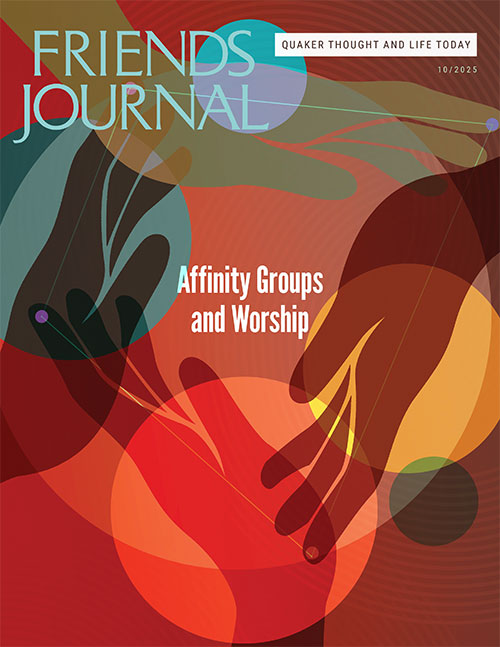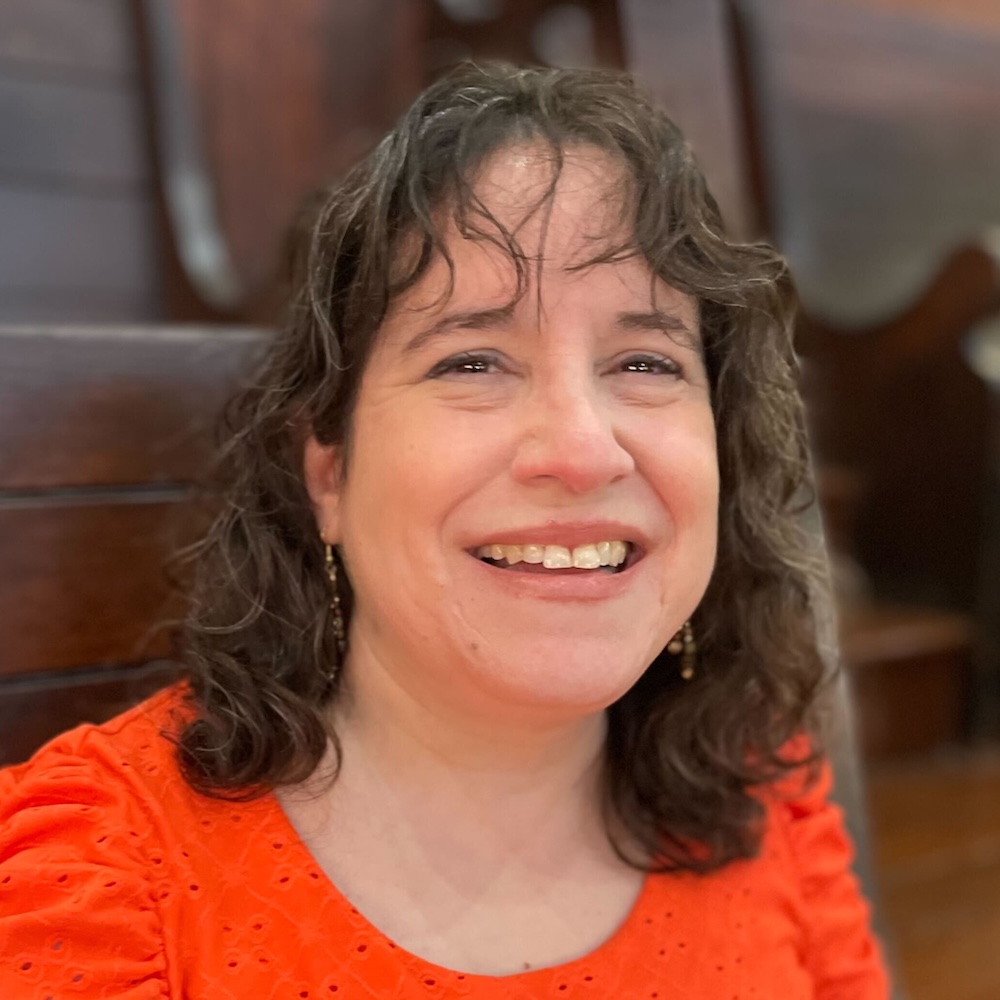Offering Comfort and Meaning to College Students
Leaving home for college offers young adults opportunities to learn which values and beliefs of their upbringing they wish to keep and which they will leave behind. Some students who grew up in non-religious homes acquire faith for the first time in college. Others change religions or disengage from faith completely. Many colleges and universities in the United States employ chaplains and other staff members to accompany students on their spiritual journeys. Students also support each other’s spiritual growth.
The relatively small number of Quakers on most college campuses in the United States form affinity groups to support their own faith journeys. Such groups also reach out to the large populations of non-Quakers in the student bodies of their schools.
“What do I want my adult spiritual life to look like?” is a question Haverford College junior Rhianna Searle considers central to her college experience. Searle works as an intern in the Quaker Affairs office at Haverford, a Quaker-founded school in Haverford, Pennsylvania, that is currently non-sectarian. Searle grew up in Wrightstown Meeting, about 35 miles away in Newtown, Pennsylvania.
During a conversation with a Jewish friend, Searle noticed that there were several religious clubs on campus but no Quaker club. Recent graduates that she knew told her of their fond memories of Quaker House, a communal living building for those interested in Quakerism. Searle launched a Quaker club this year. Some members of the club had gone to Friends schools before coming to college and appreciated connecting with other Friends. This Quaker club might start a book group for reading Quaker-themed and social justice books, as well as Pendle Hill pamphlets.
Searle also plans to collaborate with nearby Haverford Meeting to create an oral history project based on the experiences of older members. She also wants to connect with the non-Quaker campus community. The Israeli–Palestinian conflict is a crucial issue for many at Haverford, and Quakers can offer space for discussing moral obligations related to the conflict.
Searle’s spiritual life helps her figure out her role in fixing world problems. Quakerism helps her find hope and purpose in life. Spirituality helps her accept the fact that she must do something to address world issues while realizing that she cannot do it all.
A Quaker affinity group, such as a worship meeting, can create a safe space and enable students to rebuild atrophied social muscles.
Young adults are impacted by the COVID-19 pandemic, often in ways they might not realize, according to Searle. During the pandemic shutdown, Searle relied heavily on social media for communication and tuned into the news much more than she previously had. The non-stop news cycle can lead young adults to feel overwhelmed by the world’s issues.
“A lot of the needs today are not dissimilar to the needs before COVID, but they’re amplified,” said Wess Daniels, William R. Rogers Director of Friends Center and Quaker Studies at Guilford College in Greensboro, North Carolina. Daniels is a member and recorded minister at First Friends Meeting in Greensboro.
The need for belonging has intensified after the isolation of the pandemic shutdown, Daniels noted. The outside quad area used to be full of activity but now is nearly empty. Students are much more likely to interact through their phones than in person, he said. Contemporary students talk more freely about mental health concerns as their motivation for seeking spiritual community than did previous generations of students.
The Quaker Leadership Scholars Program offers cohorts of 30 students four years to discover how they can deepen their spiritual lives and serve the larger community in line with Quaker values.
Out of approximately 1,000 students at Guilford, about 30 are Quakers, Daniels estimated. There is great value to Quaker practices such as sitting in silence, whether one is a Friend or not, Daniels explained. Daniels also teaches a class on the practice of silence. He convenes weekly silent meetings, which he says are not well-attended.
During a summer bridge program aimed at introducing high school juniors to college life, Daniels offered an introductory session on the practice of sitting in silence. Most participants of the non-Quaker group predicted they would hate the activity. “It is what we need, but we don’t always want it,” Daniels said of sitting in silence as a regular practice.

According to John Bach, Harvard University’s Quaker chaplain, there are very few Quakers on the school’s campus in Cambridge, Massachusetts, but there are some students who have graduated from Friends boarding schools and are interested in Quakerism. Friends Meeting at Cambridge, where Bach is a member, attracts Harvard students who relish the silence.
Similarly, Brown University students who have graduated from Quaker schools are often attracted to the weekly meeting for worship held on its campus in Providence, Rhode Island, according to recently retired Quaker religious life associate, William Monroe, who is also a member of Providence (R.I.) Meeting. Worshipers appreciate the opportunity to spend time being instead of doing. One worshiper noted that sitting in silence was unlike her other experiences with yoga and meditation. “Sitting there to listen was so different from trying to do something,” Monroe said.
Other campus spiritual leaders also help students place their work and study in a larger context. The most common spiritual question that Bach receives from students is, what is the meaning of life? His answer is this: helping others and being widely loved. Bach spoke on Zoom with rainbow peace flags and a “War Is Not the Answer” sign in the background.
In addition to providing for such spiritual needs as meaning and belonging, Quaker religious life workers on campuses offer compassion to the many students who are living with mental health issues such as anxiety and depression. Many students are overwhelmed with anxiety about the world and their place in it, Guilford’s Wess Daniels explained.
Students also experience anxiety about separating themselves from their phones and allowing their minds to wander, so he plans to offer a class on boredom for first-year students. Students in the class called “Boredom as a Superpower” will have assignments such as doing one thing each week that they consider boring and writing a journal entry about the experience. So many students signed up for the class that it is overfilled.
In addition, Daniels and other faculty members are offering a communal boat-building project to help students get out of their rooms and participate in a sometimes frustrating but ultimately meaningful endeavor. The project is intended to engage participants’ minds, bodies, and spirits. Slated to take about six months, the activity will involve faculty and students in milling a white oak to build a 15-foot skiff, according to the college’s website. Goals include developing skills in problem solving and team learning.
Contemporary students talk more freely about mental health concerns as their motivation for seeking spiritual community than did previous generations of students.
Harvard students experience enormous academic pressure, sometimes leading to a sense of despair. Students concerned with their own mental health issues sometimes reach out to chaplains for help. Bach speaks regularly with a member of the Harvard community who experiences a lot of academic pressure and deals with suicidal feelings. She had agreed not to take any action to harm herself without first calling Bach. She was considering jumping to her death but decided not to after googling the likelihood of surviving the jump and living with a permanent disability. Quaker spirituality, along with the faiths represented by the 34 other chaplains on Harvard’s campus, can offer comfort and meaning to students and faculty whose mental health suffers due to academic pressure.
Contemporary students talk more freely about mental health concerns as their motivation for seeking spiritual community than did previous generations of students, according to Lori Pineiro-Sinitzky, associate director of Religious and Spiritual Life for Quaker Affairs at Haverford College and a member of Green Street Meeting in Philadelphia. Many spiritual seekers are also responding to their own anxiety about political, environmental, and social issues. “Students are seeking a framework for how to process and put into context the social-political situation we find ourselves in,” Pineiro-Sinitzky said.
Twice a week at various times and locations, the Quaker Affairs office at Haverford College offers meeting for worship, which includes a question-and-answer session. Starting this fall, the office will offer monthly conversations over lunch in which non-Quakers can talk with Friends, including mystery guests portraying historical Quakers. The school will also have a Friend in residence each semester of the 2025–2026 school year. In addition, there will be shared viewings of First Monday lectures offered by Pendle Hill, a Quaker study center based in nearby Wallingford, Pennsylvania.
Pineiro-Sinitzky finds that deep listening and the Quaker manner of seeking truth aligns with academic freedom. Quakers’ practice of conflict resolution offers meaningful insights in how to transform relationships in times of extreme political polarization. “I think Quakerism has a lot to offer in this time of confusion, disruption, and rupture in our culture,” Pineiro-Sinitzky said.





Comments on Friendsjournal.org may be used in the Forum of the print magazine and may be edited for length and clarity.